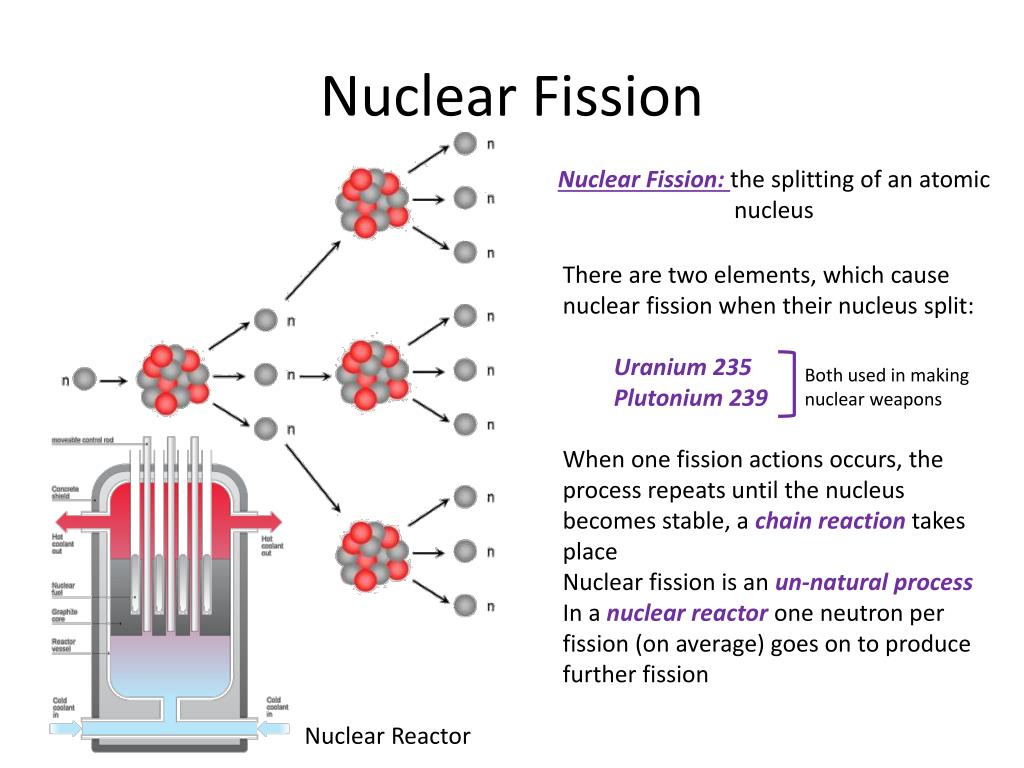
The cladding is a solid material and pressure boundary which keeps the nuclear fuel and any fission products created inside each fuel element. There are also other means used for controlling the power level of a nuclear reactor.Ī fission reactor core contains fuel elements, which are like "package structures" which contain the nuclear fission fuel encased in cladding. Withdrawing the control rods in a precise manner is used to start up the reactor. A quick insertion of the control rods into the core for an emergency shutdown of the reactor is called a scram. Inserting all of the control rods into the core will capture the neutrons and stop the chain reaction, effectively shutting down the reactor. These control rods can be withdrawn from or inserted into the core to control the nuclear chain reaction. A reactor has a number of control rods consisting of a material which captures neutrons. The numerous nuclear fissions in an operating reactor core release heat, which is used as thermal power, the usual ultimate goal of the reactor. In such an operating reactor, there are many neutrons flying around in the core, and the concentration of these neutrons is often referred to as a neutron flux. A repetitive cycle of fissions and neutrons results in a chain reaction under the right conditions, which is the objective of a nuclear fission reactor. These newly released neutrons can then go on to cause further fission of other fissile nuclei, releasing more neutrons.

Nuclear fission typically occurs when a neutron hits a fissile nucleus, splitting the nucleus into two smaller nuclei called nuclear fission products and a couple of neutrons. Nuclear reactors in which this sort of breeding takes place are called nuclear breeder reactors. For example, uranium-238 ( 238U or U-238) can be bred to produce plutonium-239 and thorium-232 ( 232Th or Th-232) can be bred to produce uranium-233.

Material that can be bred into such fissile isotopes may also be considered nuclear fuel. The three most common fissile isotopes are uranium-235 ( 235U or U-235), plutonium-239 ( 239Pu or Pu-239), and uranium-233 ( 233U or U-233). The nuclear fuel consists of fissile isotopes, atoms of isotopes of high atomic number and mass which can readily undergo fission to produce a nuclear chain reaction. The material undergoing the fission in the core is considered the nuclear fuel. These nuclear fission reactions take place by a controlled nuclear chain reaction in the reactor core inside the reactor. Up to this time, nuclear reactors for large scale power generation use energy released by nuclear fission, which is highly exothermic, meaning each fission releases a relative large amount of heat per atom split. While there can be some overlap of functions, larger reactors tend to be optimized for a single purpose part of the design failures causing the Chernobyl Disaster were that the reactor tried to be equally effective for electric power and plutonium generation.įor power generation, nuclear reactors are the centerpiece of nuclear power plants. These purposes may include heat generation for electrical generation, marine propulsion, or heating industrial plants or other facilities breeding nuclear fuel the preparation of radioactive isotopes for use in nuclear medicine, industrial testing, or creating controlled sources of radiation production of nuclear materials such as plutonium or tritium or making materials temporarily radioactive for procedures such as neutron activation analysis. These reactions generally involve controlled nuclear fission chain reactions with a neutron flux.



 0 kommentar(er)
0 kommentar(er)
